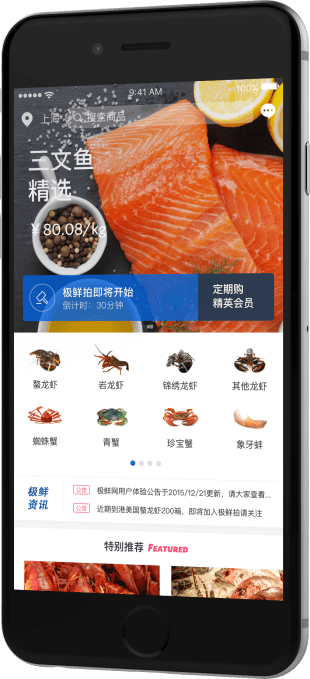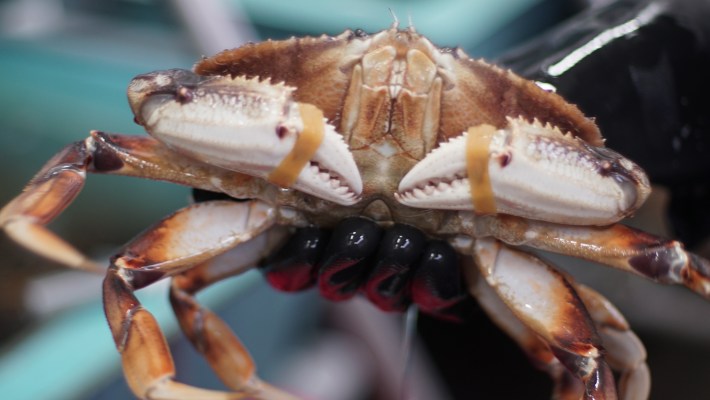Seafood consumption is soaring in China, along with increases in average disposable income there. But live, edible fish and shellfish are challenging to buy, sell and transport across borders within and beyond China.
As a result of the complexities in shipping live fish, and complying with health and customs regulations, tons of seafood are wasted each year, at a time when our oceans are already over-fished.
Now a Shanghai-based startup called Gfresh is building a mobile marketplace and logistics service to help industry players buy, sell and transport live seafood as efficiently as possible throughout and beyond China.
The company has raised a Series A round of venture funding of approximately $20 million (CNY ¥100 million) from Riverhill Fund, an Alibaba affiliated venture firm, and Legend Capital, an early backer of the Chinese social media platform RenRen, according to Gfresh cofounder Anthony Wan.
The deal closed in August. But at the Qingdao Seafood Expo in China today, Gfresh revealed that Alibaba cofounder Simon Xie Shihuang is joining its board of directors.
The startup, which spun out of a large furniture shipping and logistics business called Regs Group two years ago, has already processed more than $200 million worth of wholesale live seafood orders.

Gfresh is a mobile marketplace for sales of live seafood.
It currently offers an Android, iOS and Web app, but users most commonly access Gfresh via Android today, Wan said.
On the fishery side of their platform, Gfresh asks users to list their inventory, with notes about origin, species and quality of their catch, and set a list price. The suppliers see aggregate pricing and demand data which can guide them in establishing a price.
When a buyer procures live seafood through Gfresh, the company takes their payment into an escrow, or GPay, account.
For smaller shipments, Gfresh batches boxes together, and exports them in a shared container, handling all the appropriate customs and health-related paperwork in disparate markets.
Upon arrival, Gfresh picks up the live seafood imports at a given port or airport in a refrigerated truck.
Gfresh delivers live seafood orders to wholesale buyers’ doors, where a company inspector takes a video at the time the order is received. The idea is to record any potential issues, for example a certain number of dead lobsters in a crate, or low levels of seawater in a shipment of swim bladder, a luxury fish.
When there are problems with a shipment, Gfresh discounts the buyers and pays out the rest to the sellers according to pre-arranged terms. Eventually, Gfresh expects buyers will be comfortable recording their own videos via smartphones or tablets for quality control purposes.
Such record keeping and escrow accounts are helpful for smaller, or artisan fisheries that may not have had the budget to travel around the world to get to know potential buyers, or to safeguard themselves against fraudulent claims.
Batching of orders by Gfresh makes it possible for smaller fisheries to sell their limited quantities without having to bow to exporting partners’ pricing demands.
Wan explained, “While marketplaces and apps have already transformed the way you can book a hotel room, or buy shoes, the seafood industry was still run on handshakes and faxes until we built this.”

Gfresh cofounder Anthony Wan.
The company which has offices in massive seafood production hubs, including Auckland and Sydney, Australia, and Vancouver, Canada, intends to use its funding for hiring, geographic expansion and to launch a new “reverse auction” feature within its marketplace.
In the seafood industry, where inventory is perishable, reverse auctions have been the most popular form of bidding at major markets from Seattle to Sydney, Wan said.
Long-term the company plans to make its services and app available outside of Asia, and to expand it to address other industries with highly perishable, hard-to-ship inventory, like fresh, if not living, fish and fruit.
